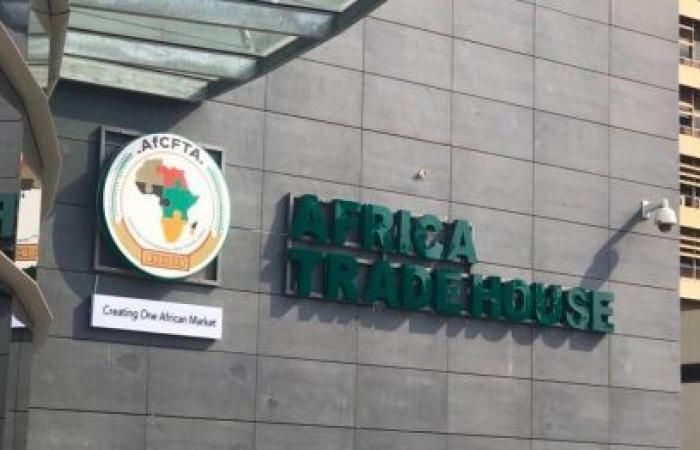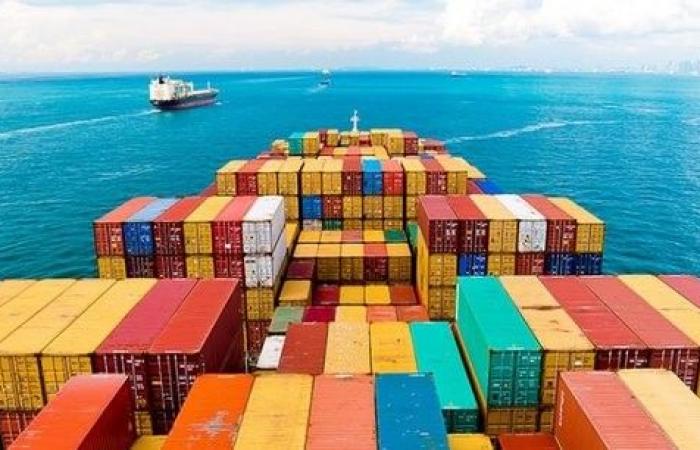(Ecofin Agency) – Although they remain poorly informed about the AfCFTA and the opportunities it presents, the majority of African business leaders believe that the common continental market will have a positive impact on their business.
91.2% of African business leaders say their business receives no support to exploit opportunities linked to the implementation of the African Continental Free Trade Area (AfCFTA), according to a report published last November by the Pan African Private Sector Trade and Investment Committee (PAFTRAC).
Titled « PAFTRAC Africa CEO Trade Survey Report 2024 : Assessing the impact of the AfCFTA on African trade »this report is based on a survey conducted among the managers of 1,388 companies active in 49 countries on the continent, the majority of which are small and medium-sized enterprises (SMEs).
Respondents highlight that the main actors who should support businesses to benefit from the common African market are trade finance institutions (68.86%), the AfCFTA secretariat (62.88%), and governments (50.18%). The priority areas of support mentioned are information on commercial opportunities (66.18%), information on the benefits of the African Free Trade Agreement (60.20%), facilitation of access to credit and long-term financing (56.17%) as well as capacity building and skills development (49.08%).
The report also reveals that 60% of leaders covered by the survey say they have a low or no level of knowledge of the AfCFTA, while 40% say they have a high or very high level of knowledge.
In the same chapter, almost half of respondents have never heard of the Pan African Payment and Settlement System (PAPSS), a revolutionary financial market infrastructure enabling instant cross-border payments in local currencies between African markets . Nearly two-thirds of business leaders also know nothing about the guided trade initiative, which has already enabled seven countries on the continent (Ghana, Cameroon, Rwanda, Kenya, Mauritius, Egypt and Tanzania) to begin their trade within the framework of the preferential conditions of the Free Trade Zone in 2023.
Inflation and debt top concerns
Despite the low level of knowledge of the AfCFTA and its instruments, 70.8% of respondents believe that a common continental market of more than 1.3 billion consumers will have a positive impact on their business. 35% expect an effect “ very positive”, while 35.8% expect an impact “moderately positive” and 15.5% anticipate a weak positive impact.
They cite several potential benefits of the Free Trade Zone, including a larger market size (70.87%), new investment opportunities (67.06%) and reduced operational costs (50.65%). ). Regarding the threats linked to the emergence of an African common market, they fear in particular greater competition, a drop in profits linked to market saturation and an increase in taxes, correlated with the loss of tariff revenue for governments. .
The report also indicates that the main concerns of the African business leaders surveyed concern soaring inflation (67.61% of respondents), rising debt levels (63.03%), increased interest rates (54.12%) and local or regional political and security challenges (53.29%).
Despite the various economic and political uncertainties cited, 67% said they were confident about the continent’s economic prospects, while 26% were “neutral” et 7% “not confident”.
PAFTRAC is an advocacy platform, bringing together private sector actors and African decision-makers, which works to support extra- and intra-African trade, investment and pan-African businesses.
Walid Kefi
Edited by MF Vahid Codjia
Also read:
28/11/2024 – Ivory Coast identifies key agricultural products to benefit from the AfCFTA
10/17/2024 – The EU commits to mobilizing $1.2 billion to support the Zlecaf
02/15/2024 – How the Zlecaf can boost intra-African clothing trade (report)
01/31/2024 – South Africa today makes its first shipment under the Zlecaf preferential regime
04/12/2023 – How African ports can contribute to the growth of intra-African trade within the framework of the AfCFTA (report)







